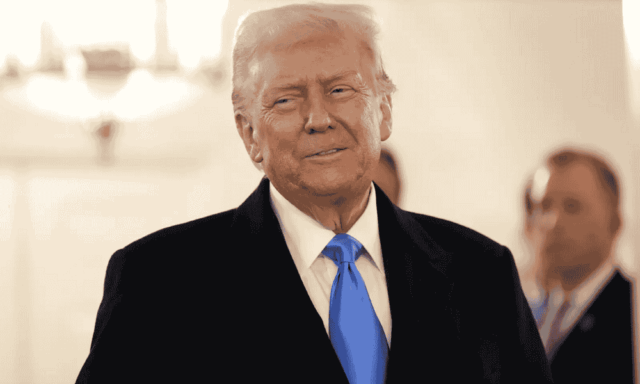Washington: President Donald Trump‘s administration is finalizing plans for reciprocal tariffs on countries that impose duties on U.S. imports. This move has heightened fears of a global trade war as key trading partners prepare their responses.
European Union Prepares Response
The European Union (EU) is considering countermeasures after Trump announced new tariffs on steel and aluminum imports starting March 12. European Commission President Ursula von der Leyen warned that these measures “will not go unanswered.”
Meanwhile, trade ministers from the EU’s 27 countries are meeting to discuss their next steps. Concerns are growing among European steelmakers that U.S. tariffs will lead to a flood of cheap steel imports into the region.
Global Reactions to Tariffs
Trump’s tariff plans have drawn sharp criticism from Mexico, Canada, and the EU, while Japan and Australia are seeking exemptions. The recent 10% tariff on Chinese goods has already triggered Chinese countermeasures, escalating tensions further.
Additionally, Trump postponed a 25% tariff on Mexican and Canadian goods until March 4, allowing time for negotiations on border security and measures to curb fentanyl trafficking.
U.S. Businesses Brace for Impact
While some U.S. workers support the tariffs, many businesses fear rising costs. Companies like Siemens Energy and supermarket chain Ahold Delhaize warn that increased import costs will lead to higher consumer prices.
Implementation Challenges
The White House has remained tight-lipped on the structure and timing of the next round of tariffs. Trump stated he would announce reciprocal tariffs within two days, potentially targeting cars, semiconductors, and pharmaceuticals.
However, experts say implementing such tariffs is complex. William Reinsch, a senior fellow at the Center for Strategic and International Studies, suggests a flat 10% or 20% rate may be easier than country-specific duties.
Trade specialist Damon Pike highlighted the difficulty of matching tariffs across 186 World Customs Organization members, calling it a “monumental undertaking.”
Possible Legal Justification
Trump may invoke the International Emergency Economic Powers Act (IEEPA) to impose tariffs quickly, bypassing Congress. Experts caution that this strategy could lead to unexpected consequences, potentially raising consumer costs on products like Colombian coffee, even though the U.S. doesn’t produce it.
Conclusion
With tensions rising and countries preparing countermeasures, Trump’s reciprocal tariff plan risks escalating global trade disputes. As negotiations continue, businesses and governments worldwide are bracing for potential economic fallout.











